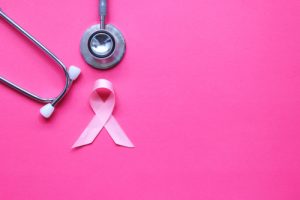
U.S. Sen. Shelley Moore Capito (R-WV) on June 22 introduced a bipartisan bill that would reauthorize the National Breast and Cervical Cancer Early Detection Program (NBCCEDP) from fiscal years 2023 through 2027.
“As a longtime advocate in the fight against cancer and as a member of the Senate Appropriations Committee, I’ll continue to ensure this vital program can maintain its role in providing access to critical medical services that help avoid often preventable deaths,” Sen. Capito said.
Created in 1991, the NBCCEDP is a partnership between the Centers for Disease Control and Prevention and state departments of health that provides breast and cervical cancer screenings and diagnostic services for women who are low-income, uninsured, and under-insured and who do not qualify for Medicaid, according to the text of the bill.
Sen. Capito is one of four original cosponsors, including U.S. Sen. Susan Collins (R-ME), of the Screening for Communities to Receive Early and Equitable Needed Services (SCREENS) for Cancer Act of 2022, S. 4440, which is sponsored by U.S. Sen. Tammy Baldwin (D-WI).
Reauthorizing NBCCEDP will result in expanded services, leading to more people being screened and more cancers being diagnosed at earlier stages, according to the bill’s text.
“Simply put, the National Breast and Cervical Cancer Early Detection Program saves lives in West Virginia and across the country,” said Sen. Capito. “Reauthorizing this program is a key component of the SCREENS for Cancer Act, and I’m proud to help introduce it.”
If enacted, S. 4440 also would increase flexibility to NBCCEDP grantees to allow a greater emphasis on implementing evidence-based interventions and outreach to underserved communities and would provide additional funding to better support the program and ensure that more women are able to access services, according to a bill summary provided by Sen. Capito’s office.
S. 4440 has garnered support from numerous organizations, such as Susan G. Komen, the American College of Obstetricians and Gynecologists, Check for a Lump, Men Supporting Women with Cancer, the National Cervical Cancer Coalition, the National Hispanic Medical Association, the National Women’s Health Network, and The Black Breast Cancer Alliance, among many others.



